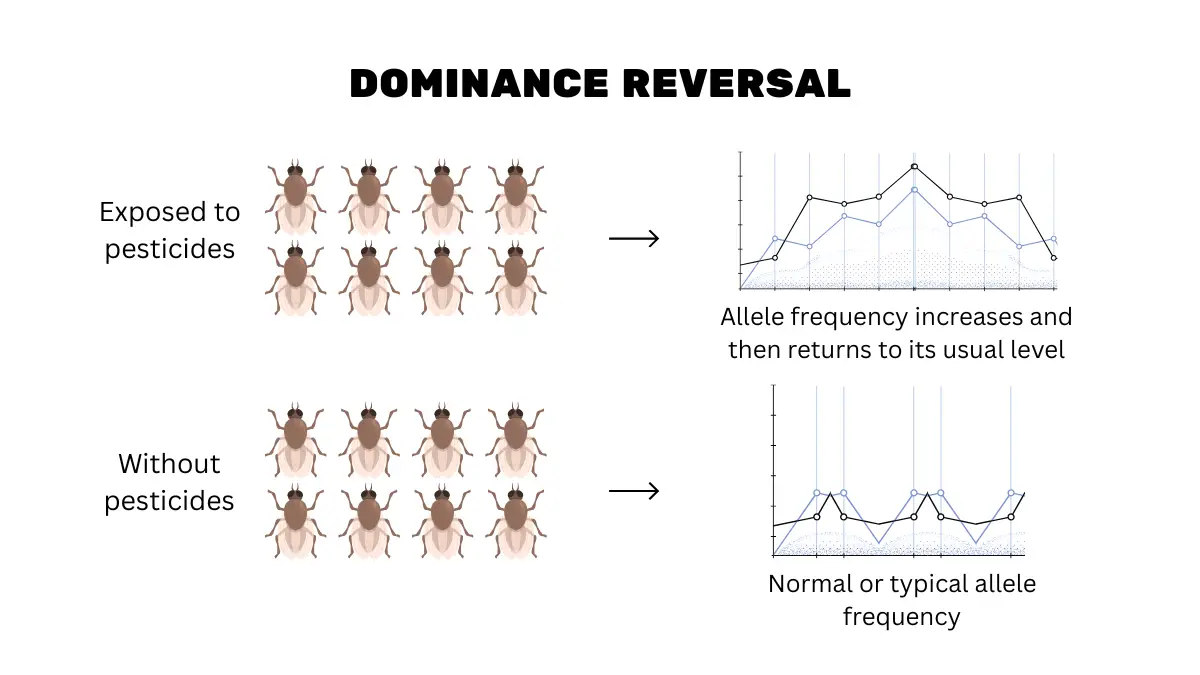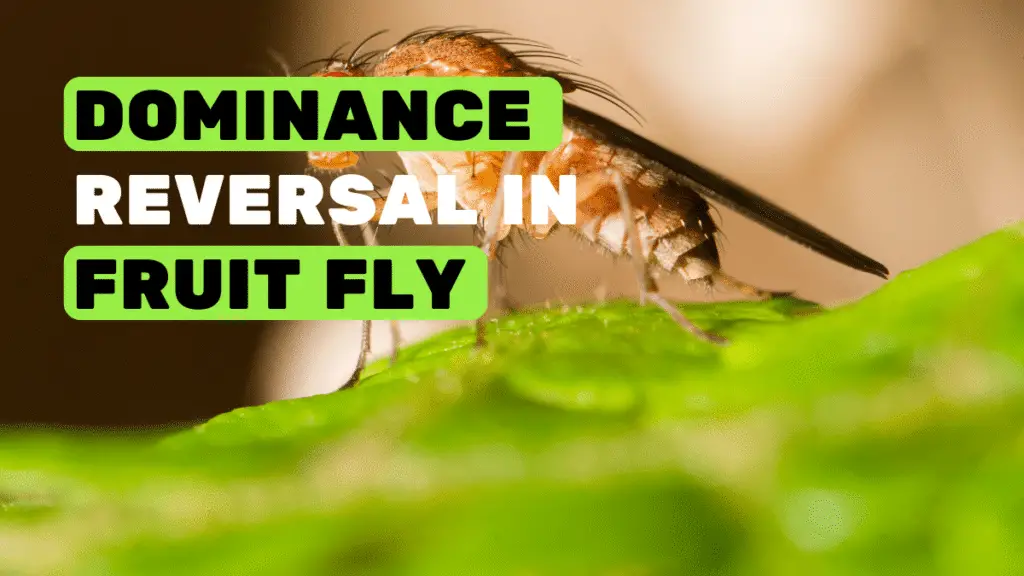A recent Stanford study showed that fruit flies can reverse gene dominance under environmental pressure.
Our genes follow an important mechanism known as genetic inheritance. Genes are transferred from one generation to another through genetic inheritance. Two, in general, inheritance patterns are dominant and recessive.
Dominant genes are expressed only with a single allele, while recessive genes need both alleles to be expressed. Inherited genetic disorders also follow the same pattern. For example, some genetic disorders are dominant – Huntington’s disease, and some are recessive – Beta thalassemia.
That inheritance pattern is an inherent and unchanged property of our genes. And because of this, genetic diseases originate too. For instance, a mutant allele dominantly expressed, even if it is not needed, causes a dominant genetic condition.
However, a recent study published by Stanford scientists discovered an unusual mechanism known as ‘dominance reversal’ in fruit flies. Their findings suggest, some genes are dominantly expressed when needed, but revert to the normal status when not!

In the rapidly changing environment, it is difficult for flies to adjust their genes. For instance, seasonal and human activities. The team led by Dmitri Petrov and Marianthi Karageorgi selected a pesticide-resistant trait for their experiment. They conducted lab & field experiments and mathematical analysis for the present research.
Pesticides have been spread in one season, but over time, the fruit flies develop resistance through gene modification. This modified gene variant, in its dominant form, helps flies to resist pesticides.
If this gene variant remains active without natural pressure, it causes developmental and reproductive problems in fruit flies. What these scientists have reported is that these flies developed a novel phenomenon known as dominance reversal.
Meaning, under the pesticidal pressure, resistant genes are dominantly expressed. On the contrary, when not exposed to pesticides, the same genes remain in a recessive status. It shows that,
The same genetic variant is dominant when beneficial and recessive when harmful.
Read more: Your Eyes Age Faster Than You.
The dominance reversal mechanism has existed in nature for millions of years; it is not new! Said the lead author of the study. Synthetic pesticides are analogs of plant chemicals. Fruit flies already have memories of such chemicals in their genome.
So the dominance reversal is already a developed and well-established mechanism in fruit flies. The team also performed the same experiment in the field. They prepared two groups of flies, one treated with pesticides and another without pesticides.
Genetic analysis showed that the frequency of resistance alleles increased sharply in the first group, but remained stable in the second group. Interestingly, when pesticidal exposure is stopped, the allelic frequency starts dropping again to the normal state.
This experiment again supports the dominance reversal theory and shows that in fruit flies, alleles aren’t permanently dominant or recessive. They change the allelic frequency depending on the benefit they need without producing harmful side effects of dominance.
The present study also answered one crucial question associated with linked genes: How do the linked genes behave during dominance reversal?
Genes are located on chromosomes and closely related genes are linked. Hence, closely linked genes show a ripple effect. It is like an earthquake – it starts from the epicenter but spreads to the surrounding areas.
Chromosomal investigation showed that the resistant alleles showed the same effect on the chromosome, affecting the closely linked genes. However, the effect is short-lived, which prevents the rippling.
Read more: Some Genes Stayed Frozen for Millennia, Reveal Scientists at Yale.
In conclusion, this study demonstrated that certain organisms have full control over their genes. They can alter their genes and expression based on their needs, produce genetic diversity and survive without any harmful side effects.
But the most shocking part here is, they can also reverse the changes (dominance reversal) when the change is not needed and we think humans are smarter than other organisms.
Nature has thousands of examples that show outstanding genetic capabilities. Some organisms can regenerate their organs, and some can produce fluorescence. All of these, for survival!
We think we are superior, but we are even struggling to survive.
Sources:
- Classic recessive-or-dominant gene dynamics may not be so simple – Stanford Reports.
- Karageorgi, M., Lyulina, A.S., Bitter, M.C. et al. Beneficial reversal of dominance maintains a large-effect resistance polymorphism under fluctuating insecticide selection. Nat Ecol Evol (2025). https://doi.org/10.1038/s41559-025-02853-x.

